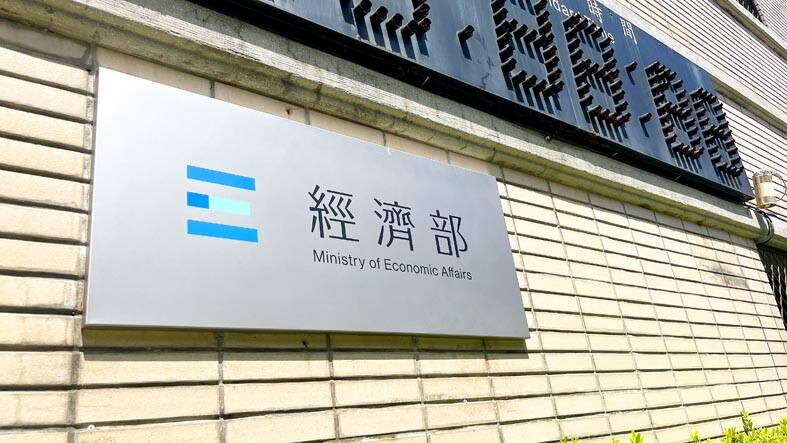The government should take a more active role in regulating outbound foreign direct investment (FDI), especially as geopolitical tensions make advanced technology strategically sensitive, experts said on Tuesday.
At a conference on strategic resilience in Taipei, Lee Wen-chieh (李文傑), an economics associate professor at National Chengchi University, said Taiwan’s “dual-track” policy — strict controls on investment in China, but comparatively loose rules elsewhere — has been “insufficient to cope with increasing external risks.”
While the government maintains tight oversight of China-bound investment, overseas expansion in other markets is largely left to companies themselves, Lee said.

Photo: Liao Chia-ning, Taipei Times
“We barely have a designated agency regulating outbound investments outside China,” he said.
Citing Taiwan Semiconductor Manufacturing Co’s (TSMC, 台積電) recent global expansion, Lee said the lack of government representation in its talks with foreign governments put the Taiwanese company in a weaker negotiating position.
He cited TSMC’s announced additional US$100 billion investment in the US in early March, saying that “all the Ministry of Economic Affairs did was deny any involvement three days later while saying TSMC made the decision.”
Taiwan’s outbound investment rules are outdated and lack a clear legal basis, lawyer Chen Yen-po (陳言博) said.
The ministry has not updated the regulations to reflect amendments made to the Industrial Innovation Statute (產業創新發展條例) in April, he said.
Only TSMC’s Nanjing, China, fab is covered by specific restrictions under the Act Governing Relations Between the People of the Taiwan Area and the Mainland Area (臺灣地區與大陸地區人民關係條例), Chen said.
Its other overseas investments remain largely outside any regulatory framework, he said, urging the government to introduce comprehensive oversight rather than leaving such decisions to companies.
Taiwan should look to how other major economies have strengthened their oversight systems, Lee said, citing the US’ CHIPS and Science Act enacted in 2022 and the Reverse CFIUS mechanism created last year, as well as Japan’s Economic Security Promotion Act approved in 2022.
By contrast, the Department of Investment Review is operating under an “outdated and reactive regulatory structure,” he said.
Lee suggested establishing a cross-ministerial FDI oversight mechanism to balance national security with corporate autonomy.
A stronger government role would allow negotiations to be conducted “government-to-government,” enabling Taiwan to leverage foreign industrial policies, tariffs and trade arrangements, he added.

In Italy’s storied gold-making hubs, jewelers are reworking their designs to trim gold content as they race to blunt the effect of record prices and appeal to shoppers watching their budgets. Gold prices hit a record high on Thursday, surging near US$5,600 an ounce, more than double a year ago as geopolitical concerns and jitters over trade pushed investors toward the safe-haven asset. The rally is putting undue pressure on small artisans as they face mounting demands from customers, including international brands, to produce cheaper items, from signature pieces to wedding rings, according to interviews with four independent jewelers in Italy’s main

Japanese Prime Minister Sanae Takaichi has talked up the benefits of a weaker yen in a campaign speech, adopting a tone at odds with her finance ministry, which has refused to rule out any options to counter excessive foreign exchange volatility. Takaichi later softened her stance, saying she did not have a preference for the yen’s direction. “People say the weak yen is bad right now, but for export industries, it’s a major opportunity,” Takaichi said on Saturday at a rally for Liberal Democratic Party candidate Daishiro Yamagiwa in Kanagawa Prefecture ahead of a snap election on Sunday. “Whether it’s selling food or

CONCERNS: Tech companies investing in AI businesses that purchase their products have raised questions among investors that they are artificially propping up demand Nvidia Corp chief executive officer Jensen Huang (黃仁勳) on Saturday said that the company would be participating in OpenAI’s latest funding round, describing it as potentially “the largest investment we’ve ever made.” “We will invest a great deal of money,” Huang told reporters while visiting Taipei. “I believe in OpenAI. The work that they do is incredible. They’re one of the most consequential companies of our time.” Huang did not say exactly how much Nvidia might contribute, but described the investment as “huge.” “Let Sam announce how much he’s going to raise — it’s for him to decide,” Huang said, referring to OpenAI

The global server market is expected to grow 12.8 percent annually this year, with artificial intelligence (AI) servers projected to account for 16.5 percent, driven by continued investment in AI infrastructure by major cloud service providers (CSPs), market researcher TrendForce Corp (集邦科技) said yesterday. Global AI server shipments this year are expected to increase 28 percent year-on-year to more than 2.7 million units, driven by sustained demand from CSPs and government sovereign cloud projects, TrendForce analyst Frank Kung (龔明德) told the Taipei Times. Demand for GPU-based AI servers, including Nvidia Corp’s GB and Vera Rubin rack systems, is expected to remain high,